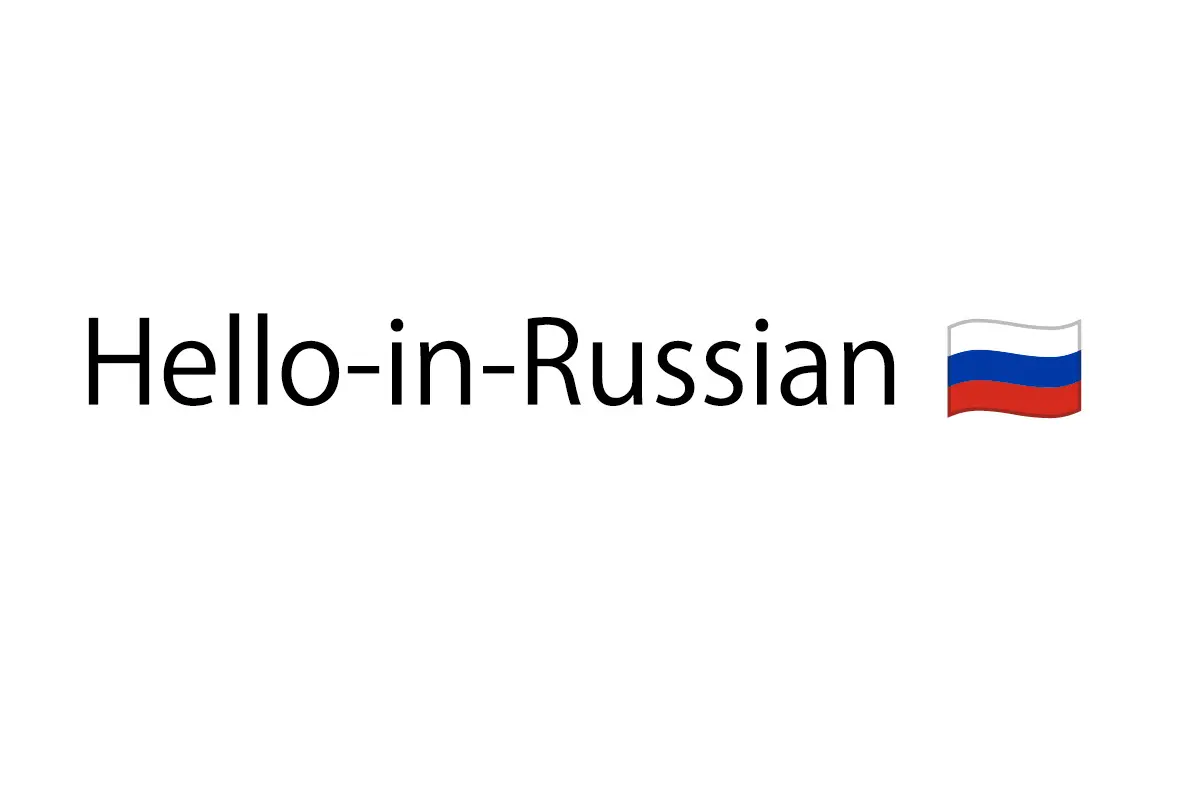
Table of Contents
Open Table of Contents
- Why Learn to Say Hello in Russian?
- The Most Common Russian Greetings
- Formal vs. Informal Greetings in Russian
- Pronouncing “Здравствуйте” Without Fear
- Regional and Cultural Variations
- Russian Body Language When Greeting
- How to Say Hello on the Phone in Russian
- Greeting Kids in Russian
- Fun Greeting Phrases You Should Know
- FAQs About Saying Hello in Russian
- Final Thoughts: Start Every Russian Conversation Right
Why Learn to Say Hello in Russian?
Whether you’re visiting Russia, chatting with Russian-speaking friends, or just diving into a new language, knowing how to greet someone properly is essential. Saying “hello” the right way helps set the tone and shows cultural respect.
The Russian language has a rich set of greetings depending on time of day, formality, and context. In this guide, we’ll walk you through exactly how to say hello in Russian, when to use each version, and some bonus etiquette insights.
The Most Common Russian Greetings
Here are the most widely used greetings in Russian:
| Russian | Transliteration | English Meaning | When to Use |
|---|---|---|---|
| Здравствуйте | Zdravstvuyte | Hello (formal) | With strangers, elders, professionals |
| Привет | Privet | Hi (informal) | With friends, peers, family |
| Доброе утро | Dobroye utro | Good morning | Morning hours |
| Добрый день | Dobryy den’ | Good afternoon | Midday greetings |
| Добрый вечер | Dobryy vecher | Good evening | After 6pm |
| Алло | Allo | Hello (on phone) | Answering the phone |
Each version plays a unique role depending on the relationship, time, and tone of conversation.
Formal vs. Informal Greetings in Russian
In Russian, formality matters a lot more than in English.
-
Use “Здравствуйте” with:
- New people
- Your boss
- Shopkeepers or waiters
- Older people
-
Use “Привет” only with:
- Close friends
- Children
- Classmates
- Social equals
If in doubt, default to “Здравствуйте” — it’s always safe and polite.
Pronouncing “Здравствуйте” Without Fear
Let’s break it down: Здравствуй + те
- Sounds like: zDRAH-stvooy-tyeh
- It means “Be healthy” — a traditional Russian greeting.
Yes, it’s a tongue-twister, even for some native speakers! Practice it slowly and listen to native examples using language apps or YouTube videos. After some repetition, it rolls off more easily.
Regional and Cultural Variations
Russian is spoken in many countries, and regional dialects or slang might affect greetings:
- In Ukraine, “Вітаю” (Vitayu) is sometimes heard.
- In Belarus, you might hear “Добры дзень” (Dobry dzen’).
- In casual online chats, you’ll also see things like:
- “Прив!” (shortened “Privet”)
- “Здарова” – a very casual, masculine “yo!”
Be cautious with slang greetings — they can be super informal and inappropriate in many contexts.
Russian Body Language When Greeting
When greeting someone in Russia, it’s not just about what you say, but how you behave.
✅ Do:
- Make eye contact
- Smile (modestly)
- Offer a firm handshake (for men)
- Nod politely if unsure
❌ Avoid:
- Hugging strangers
- High-fives
- Loud or exaggerated gestures
Fun fact: Russians rarely smile just to be polite. Smiles are reserved for genuine emotion, so don’t take it personally if someone seems a bit serious!
How to Say Hello on the Phone in Russian
Instead of “Привет” or “Здравствуйте”, when picking up the phone, say:
- Алло (Allo) – Just like “Hello?” in English
This is used universally in Russian phone conversations. You don’t use “Здравствуйте” unless continuing the conversation.
Greeting Kids in Russian
To greet children or speak informally:
- Say “Привет!”
- Some adults might also say “Здравствуй” (singular polite form)
If you’re learning Russian for kids’ education or parenting, start with “Привет” and teach emotional tone along with it.
Fun Greeting Phrases You Should Know
Here are some extended greetings that go beyond a simple “hello”:
| Phrase | Meaning |
|---|---|
| Как дела? (Kak dela?) | How are you? |
| Рад тебя видеть! (Rad tebya videt’!) | Glad to see you! |
| Давно не виделись! (Davno ne videlis’!) | Long time no see! |
| Как поживаете? (Kak pozhivayete?) | How have you been? (formal) |
These can help build rapport and keep conversations going naturally.
FAQs About Saying Hello in Russian
Q: Is “Здравствуйте” too formal for everyday use?
A: Not at all. It’s perfectly safe and used commonly in public spaces or when you’re unsure of how formal to be.
Q: Can I say “Привет” to older people?
A: It’s not recommended unless you have a casual relationship. Stick to “Здравствуйте” with elders or professionals.
Q: How can I remember when to use which greeting?
A: Think of “Здравствуйте” as your default, and switch to “Привет” only with people you’d call by first name.
Final Thoughts: Start Every Russian Conversation Right
Learning how to say hello in Russian opens the door to deeper cultural appreciation and respectful communication. Whether you’re planning a trip to Moscow, making new Russian friends, or exploring the language academically, greetings are your first impression — make it count.
From Здравствуйте to Привет, now you’ve got the tools to say hello like a native.
👉 Try our Russian alphabet tool to master pronunciation and writing!
🎯 Ready to learn more Russian? Try a conversation lesson with Avatalks and start speaking confidently today!